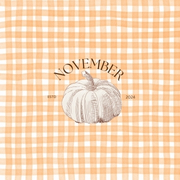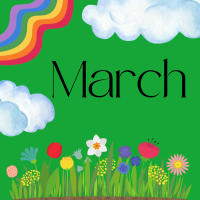Green Tip of the Month

January 2024
Happy New Year!
With the new year, many people may be looking to upgrade their lifestyle. Consider making one of your resolutions to prioritize repairing old items, rather than upgrading and replacing items to reduce waste. Some examples include learning to sew rips and tears in clothing, getting clothes tailored, and taking old shoes to the cobbler. This article highlights some more items that are easily repaired rather than discarded.
As the weather cools down and the days become shorter, many households will use more energy. One way to reduce energy use and save on utility bills is to make your space more energy efficient. Use LED lights, add draft stoppers, and seal leaky windows to make your home more cozy. This article discusses more ways to weatherproof your home.

December 2024
Happy Holidays!
This December, aim to make the upcoming holidays and time with family more sustainable. If you plan on giving gifts, consider using sustainable gift wrap or forgoing it altogether by using scarves or fabric, reusable totes, or reusing wrapping paper.
During the holiday season, it is easy to get wrapped up in the excitement of the holiday. However, remember to be mindful of your consumption and consider buying less. Try out a Secret Santa rather than buying gifts for every individual so that each person gets one gift they really like.
To reduce waste, try gifting handmade, thrifted, or locally made sustainable items. Special items like this will be more unique and feel more personal while avoiding excess waste and overconsumption.

November 2024
Happy November Slugs!
As the weather cools down it’s time to lean into the cozy fall weather. Next time you are headed to your favorite coffee shop for a yummy fall drink, consider bringing your own reusable cup or thermos to reduce plastic waste. Many coffee shops even offer a discount if you bring your own cup!
With Thanksgiving approaching, consider sourcing sustainable ingredients for your holiday meals. The Santa Cruz Farmers Market has a variety of fresh and organic fruits and veggies for a delicious holiday feast. The Market Match program is a great feature for students who use EBT, offering a dollar-for-dollar match that can be used towards sustainable produce.
We recognize that not everyone celebrates this very controversial holiday and we acknowledge the multiplicity of cultural views around the celebration of the Thanksgiving holiday.

October 2024
Welcome back slugs!
School is back in session, meaning that students are commuting to school and work more than ever. It is widely known that using alternative transportation like biking, walking, or taking the bus is a great way to reduce emissions while avoiding traffic and parking fees. Try using the Transit app to view departure times for metro and loop buses with live tracking to make riding the bus a breeze.
Head to the UCSC Bike Co-op to borrow bike tools, learn more about bikes, and even bike service. The Bike Co-op offers discounted locks, lights, helmets, brake pads, chains, and tubes, and all services are completed on a donation basis.
Welcome to June!
Summer is here and that means hot weather is back too.
Open your windows to cool your home/apartment down in the early morning and at dusk. This will help you save on your electricity bill and get a nice airflow without fans.
Water your lawn and plants outside of peak sunlight hours. Plants need less and soak up more water all together when they get watered at dawn or dusk! Help your water bill and your green friends at the same time.
Avoid bottled water! As tempting as it can be, bottled water is a single-use plastic which is horrible for the environment. Reusable water bottles or pitchers of water for guests are the best option this summer! Click here for some of the best alternatives to bottled water.

May 2024
Did you know that the Redwood Free Market has bulk personal care products? Wonderfil is a type of bulk refill company started by UCSC alumni to reduce the use of plastic packaging. Students can get laundry detergent, shampoo, conditioner, and body wash from the Redwood Free Market in Rachel Carson at no cost, just bring your own container or check one out for free products with a reduced environmental impact by avoiding single-use packaging! Learn more here.

Welcome to spring quarter!
With the weather getting warmer it’s important we remember to get outside as much as possible and to give back to our wonderful planet.
Stand against deforestation! Around one third of the world’s forests have been cut down since the start of the 20th century. One of the best ways to help is to use less paper, hence, to stay online more. Or plant a tree!
Earth Day is on Monday, April 22nd this year! Be sure to get out and get involved in any local activities or projects being held. Check here to get inspired!
Pick up trash! It may seem easy, but picking up and correctly disposing of trash you see while out on a run or as you walk into work can make a HUGE difference. Click here to see some of the impacts it can make.
Welcome to March!
Spring is just around the corner so here are some tips and tricks to make your life a tad more green and maybe inspire some sustainable action!
Make your own, Eco Friendly cleaning products. Consider eco-friendly dryer sheets or maybe making some reusable swiffer pads. Perhaps an all natural cleaner with just grapefruit and salt. Here is a guide to green cleaning products you can make yourself.
As we enter the rainy season, think about installing a rainwater harvesting system in your garden or just to water a couple of your plants. It’s a simple and easy way to stay green while using water!
Brush up on your recycling skills. Take a recycling quiz and see just how much you know about recycling. Afterwards, consider implementing some of the choices you missed into your life, that way next time you can get a 100% AND feel better about your efforts to recycle smartly.

Looking for a fun and sustainable hobby this winter? Try knitting or crochet! Learning these crafts can help you create beautiful clothes and blankets to keep you warm and give you a fun activity during the colder months. Homemade gifts are also great for Valentine's Day. By using sustainable yarn you can cut down on the environmental impacts that come from purchasing winter clothes or bedding from big box stores while channeling your creativity.
Make your own stovetop simmer pot! When getting cozy this winter, ditch the scented candles which generate waste and release harmful toxins into the air. Instead, try combining different ingredients and simmering them on the stovetop, bonus points if the ingredients are in season and sustainably sourced. The best part is that these pots can be reused, just reheat when you are ready to fill up your space with yummy scents.
January 2024
Welcome to 2024,
January is a fresh start- an ideal time to set sustainability goals to pursue in the year to come, or to continue the green practices you’ve implemented in the past years. Below are a few suggestions to make this year your most sustainable yet!
Go Meatless! Choose a day of the week, or several days if you feel up for it, to cut meat out of your diet. Meat production generates a large carbon footprint, about a fourth of global greenhouse gas emissions, so substitutions to a more plant based diet helps tremendously.
If you’re into gardening or lawn care, consider planting native species. Native plants are more resilient, which means less time you have to spend caretaking, not to mention they make for a healthier yard. And don’t bother raking those leaves, turn to leaf mulching instead.
Get your hands dirty! Join a cause and volunteer some of your time this year. Find a local organization or committee that might need some extra hands. Or look online to find sustainability opportunities across the country that might be more your speed.

December 2023
Happy Holidays!
As we enter the season of giving, the Sustainability Office is giving you some tips to help keep you green as this year comes to a close.
Avoid cheap stocking stuffers! If you celebrate Christmas you may know that many times stockings are filled with cheap plastic items that end up broken or discarded. However, they are a great Christmas tradition. And so with a little extra thought, each gift can produce a smile while not being tossed in the trash.
Eco Friendly holiday travel! If you’re driving home this year consider renting an eclectic vehicle or, if possible, opt for public transport like buses or subways. If you’re flying home, a great way to offset your carbon emissions is to purchase carbon offsets from reputable sources or fly like a NERD!
Lastly, surprise! Real christmas trees are more sustainable than plastic ones. The artificial trees often get replaced every few years and can take years to break down in a landfill. Check with your local tree grower and ask for information about their sustainable practices and use of pesticides! True sustainable farms will plant more trees than they cut down each season.

November 2023
Welcome to November!
With the leaves falling and weather getting cooler, here are some ways to make your day to day life a little more green AND some ways to incorporate sustainable tips into Thanksgiving, if you celebrate!
Buy in season fruits and vegetables! This is an easy and yummy way to cut down on the travel costs that are associated with out of season foods. Check out the Seasonal Food Guide and stop by your local farmers market for a taste of fall.
With so much cooking going on this time of year, it’s great to implement reusable utensils and sustainable kitchen products! Try to avoid using plastic cutlery and if you need to, consider purchasing biodegradable options.
Take a step away from Black Friday and Cyber Monday. These days promote overconsumption under the disguise of blowout sales. Still buy what you need but maybe leave that second airfryer- you don’t need it.
Lastly, have any Thanksgiving leftovers? If you celebrate Thanksgiving, try to save and repurpose those leftovers into some delicious meals!mThere are tons of tasty recipes online that will help you resist the urge to throw them out and instead help out our environment and your grocery budget.

October 2023
School is back in session!
As classes start, many instructors will be requesting that students purchase textbooks. Buying used textbooks is a great option to be more environmentally friendly as well as more affordable. Sites like TextbookX and eBay have a wide variety of used textbooks available at great prices.
This month many slugs will be moving to new homes and some slugs may be moving into the dorms for the first time! If you need home essentials like furniture, kitchen supplies, and even decorations be sure to shop secondhand. Facebook Marketplace, Offerup, local yard sales, and nearby thrift stores have affordable used pieces for students getting adjusted to a new home. Shopping second-hand not only saves these items from the landfill but also cuts down on waste from packaging.
Summer 2023
Happy Summer!
With summer break coming up many students will be traveling. Whether you are having a staycation at home or traveling internationally, here are a few green tips to keep in mind.
Consider buying sustainably made swimwear if you are headed somewhere warm. Over consumption of fast fashion contributes to air and water pollution, excess clothing in the landfill, and unethical treatment of workers. A list of sustainable swimwear brands are listed here.
Avoid buying travel size items and generating more waste. Instead fill up reusable containers with your favorite products to save money and reduce plastic packaing.
Take advantage of public transportation when traveling. Consider taking the bus or sharing your rideshare or shuttle service with other students to reduce your emissions and cut down on costs when heading to the airport.

Spring is in full bloom!
In honor of the beautiful weather, we’ve provided some alternative options to shake up your normal routine and get you outside. Consider biking to work, the store, or the beach to help cut down on fossil fuels but also to help yourself get active!
This May, think twice about recycling your plastic bottles and instead use them to create a window sill garden. Click here to get started on helping out our planet and helping you to eat healthy!
Speaking of gardens, students with CalFresh benefits may use their benefits to buy seeds to grow their own food. Gardening can be a great way to get outside and grow food sustainably. Click here for more information on receiving CalFresh benefits.
As the weather warms up, sun protection is key! However, many sunscreen brands contain toxic ingredients which can bleach and kill coral reefs. Look for ‘Reef Safe’ sunscreen and avoid any ingredients on NOAA's Skincare Chemicals guide this summer before heading in the water.
Happy Spring Quarter!
With the annual Earth Day on April 22nd, consider opting for more sustainable swaps, as this year's ED theme is “Invest in Our Planet.” At the core of sustainability, a very important aspect of this is to live and purchase with the future in mind.
- This year, consider making your own sustainability goals such as meatless mondays, shorter showers, or utilizing sustainable transportation like biking or busing. Check out this extensive list for many more ideas.
- Make sure to support UCSC’s Earth week, which occurs on April 19-22 and consists of many exciting activities.
- The Earth Day website contains ample resources on how to support the movement, such as voting, eco lifestyle tips and donations.
If you celebrate Easter, consider making a few sustainable swaps to make your holiday more eco friendly!
- Try making your own natural dye for your Easter eggs using household items like coffee, onion skins or turmeric. This is a great DIY project that is fun and also eco friendly, and there are many recipes that detail this process.
- Ditch the single-use plastics and utilize reusable or sustainable materials for your holiday themed items.
- Instead of using plastic eggs, consider swapping those for homemade ones made out of cardboard, recycled paper, or other natural fibers.
- Get creative with it and try making a reusable easter basket out of household items like tin, fabric, paper, hats, and more.

Happy Spring!
With spring near approaching, it’s a fantastic time to let go of old habits and implement some easy sustainable practices into your daily life!
This spring, try purchasing in season produce or preparing a garden.
- The Santa Cruz farmers markets are a great place to buy produce that is in season and also local! The Season Food Guide website is a helpful resource for learning what fruits and vegetables are in season in your local area. You can input the month and your location, and learn all about produce near you. Buying in season food is better for the environment, a few benefits being a significant decrease in fossil fuel emissions from transporting the produce a shorter distance, and a decreased reliance on chemicals and pesticides that can be polluting to the environment.
- If you have the time and space, consider starting a garden. As it’s almost time to begin planting, you can create a flat space or begin buying seeds or plant starts. Two weeks after the last frost, plant some native plant seeds or vegetables.
Start off your spring cleaning right by using sustainable cleaning products! When purchasing products at the store, ensure they list all of their ingredients and don’t contain harmful chemicals or use greenwashing tactics, such as by using misleading claims or non credible certifications. Using the EPA’s Safer Choice guide, you can get a better understanding of a product's impact on the environment. By also using reusable rags and limiting single use products, you also reduce your impact on the environment. Lastly, as you’re cleaning out your space, consider donating unneeded items at a local thrift store like Grey Bears.

Happy Winter Quarter!
If you’re planning to celebrate Valentine's day, consider opting for some more sustainble swaps when you’re shopping!
Consider purchasing some delicious and ethical fair trade chocolate for your loved one. Fair Trade certified products are much less harmful to the environment, as there are special regulations that often differ from commercial practices. Some regulations include better working conditions for farmers, as well as environmental impacts such as reducing greenhouse gas emissions, improving soil and water quality, managing waste and avoiding harmful chemicals. Fair Trade America has an extensive list of fair trade chocolates and goes more in detail on the positive impacts they can have!
Make a sustainable swap and substitute cut flowers for a live plant instead! Although they may be pretty, cut flowers die quickly and unfortunately can have harmful impacts on the environment, such as high carbon emissions from refrigeration and long-haul transport. In contrast, house plants actually reduce carbon emissions as they filter the air! For your loved ones that aren’t green thumbs, consider gifting a plant that is easier to care for, such as a cactus, succulent, snake plant or pothos. Home and Gardens recommends great low maintenance plant options and include helpful care information.
- If you do opt for cut flowers, purchase them locally! A great option is buying from the local Santa Cruz farmers markets located all around the city.
Alternatively, the most sustainable option is not purchasing anything at all and creating a homemade gift! Some great thoughtful gift ideas can be found here and include many options such as a poem, a custom collage, a homemade treat, or a piece of art.

Happy New Year!
We hope you had a great winter break and are staying dry in the rainy weather! As you return to campus, we have a couple of helpful tips for implementing sustainable practices in everyday life.
This January, try implementing more plant-based foods into your diet. An annual January challenge known as Veganuary, promotes plant-based eating for the entire month, and highlights the positive effects it can have on the planet. Utilizing less animal products can lower your carbon footprint as it results in lower emissions produced and less water used, among other benefits. There are many options in the campus dining halls that focus on plant-based meals, such as veggies and meat alternatives. If you like cooking, here you can find some great recipes that consist of vegan meals from all over the world!
If you use the campus dining halls, consider utilizing the free Eco-box program for all meal plan holders to eliminate to-go waste! This reduces the amount of single-use waste you're producing and is also very convenient. All you have to do is ask for one, use it as a to-go box, then bring it back to any dining hall and you can trade it in for a clean new one. You don’t have to wash the box before returning it, but make sure to wipe it clean with a napkin. To learn more about the Eco-Club program, you may visit Dining’s page on Meals To-Go.
Happy Holidays!
With the quarter coming to a close and winter break quickly approaching, there are many ways to implement sustainable practices this holiday season! Whether or not you celebrate holidays, there are everyday opportunities to work towards sustainability.
If you’re traveling for the break, consider your environmental impact of transportation. If possible, carpool or use public transportation to reduce emissions produced. If you’d like to learn more, there are organizations like the Carbon Fund or Terrapass that provide helpful insight into carbon offsetting and alternatives.
If you celebrate a gift-giving holiday, here are some helpful tips to reduce your environmental impact.
- Consider purchasing from local or sustainable companies. Not only does buying local support your community socially and economically, it also requires less transportation and therefore reduces emissions greatly. If this isn’t possible, there are also many great options online, and this gift guide features many ideas that support ethical & sustainable companies.
- Give experience-oriented gifts or get crafty and DIY them! A great gift option are those that don’t require physical waste, such as a trip, a meal, a membership pass, or a concert. If you like crafting, there are also so many thoughtful gifts you can make yourself. Some ideas are a photo collage or album, dessert mix in a jar, homemade cookies or soap, a fun recipe book, and more.

Sustainable thanksgiving tips, if you celebrate Thanksgiving!
We hope you have a wonderful start to the holiday season and enjoy the near approaching thanksgiving. By being mindful of a few things, you can savor the holiday while also being more sustainable!
- Plan your menu ahead of time to reduce food waste and eliminate overbuying when you may already have the item or a similar one. You can also utilize tools such as the Guestimator, that calculate food quantities depending on your number of guests and meal types.
- Purchase reusable to-go containers for all of those delicious leftovers instead of using disposable plastic bags or packages. There are many great options to choose from, such as Pyrex containers or other sustainable companies such as the Package Free shop.
- Save or freeze your leftovers to prevent food waste and to get the most out of your meal. This may seem like a no brainer to some, but in the U.S. food waste is estimated to account for 30% - 40% of the food supply. To cut down on this statistic, it’s important to package up, share or freeze your remaining food. Many foods can be easily stored in the freezer, preserving their freshness, and there are many helpful guides that describe what can or cannot be frozen.
- Consider opting for more veg-focused options at the dinner table. There are so many great vegetarian options that have a lighter carbon footprint, and incorporating a few into your meal can have a wonderful impact! Here are 89 delicious recipes that you can utilize this holiday.
We recognize that not everyone celebrates this very controversial holiday and we acknowledge the multiplicity of cultural views around the celebration of the Thanksgiving holiday.
We encourage you to attend Indigethanx, by the American Indian Resource Center, on November 17, 6 - 8 pm. Registration encouraged.

Happy fall quarter!
With October here and Halloween approaching, here are some easy and simple ways to make the holiday more sustainable!
Get crafty and make your own sustainable Halloween costumes. Consider making your own costume, such as using recyclable or reusable materials, to skip plastic store-bought costumes and craft yourself an awesome outfit. There are many ideas that utilize household things such as old sheets, cardboard, or even old clothes!
- You can also visit local thrift stores, such as Grey Bears to find some clothing options for good prices and a good footprint.
Consider buying local treats and pumpkins. There are many great options at the farmers market or local stores that have a better impact and are just as delicious! Buying food locally has many benefits such as reducing travel emissions, preserving green space, and importantly supporting and building sustainable communities.
- Importantly, after you carve your pumpkin, don’t forget to get the most out of it while also being sustainable. There are so many ways to utilize pumpkins, such as roasting the seeds, or making pie, bread, or soup!

Happy Summer!
Now that summer is finally here, it is time to go outside and spend time with friends. When hosting a picnic or summer barbeque, try shopping at the local farmers market. The Santa Cruz farmers market is Wednesdays at 6pm Downtown, Tuesdays from 1-6pm in Felton, Sundays from 9am-1pm in Live Oak, Saturdays 9am-1pm Westside, and (insert Scotts Valley). The benefit of buying from local vendors is that allows you to purchase healthy foods while supporting local businesses.
Additionally, check to see which foods are in season. The USDA has a seasonal produce guide which highlights which common foods are best during certain times of the year. In season local produce is fresher, tastes better, and better for the environment unlike out of season produce which is harvested early in order to be shipped. Some in season summer foods include peaches, tomatoes, watermelon, bell peppers, and corn.
Sustainably moving out!
With campus move-out approaching soon, there are some simple ways to make this process easier and better for the planet.
Moving can often generate many forms of waste, such as boxes, packing materials, and disposing of items no longer used. However, there are many easy ways to reduce this waste.
Avoid the trash, and instead donate items you no longer need. To make donating at school more accessible, there will be Goodwill donation bins all around campus beginning June 2nd. If living off campus, Grey Bears thrift store is open everyday from 7:30 - 2 and has a great program for donating a wide variety of items.
Instead of buying all new items, such as food, consider waiting until you move to properly assess what you need. According to the FDA, in the United States, food waste consists of about 30-40% of the food supply. One way to prevent adding to this is by determining what food you already have, and to fill your kitchen with necessities once you move out. It may be helpful to sort already purchased food and make note of what is needed, and if you share your space, to coordinate with those around you.
Many Consider using reusable moving materials. A great way to reduce moving waste and also save money is to buy reusable moving bins and containers. Instead of using materials one time, it may be beneficial to buy large bins that you can later utilize for storage.
- If you don’t have space for storage bins, many local businesses acquire an abundance of boxes that you can ask to pick up for free.
- Alternatively, neighborhood networking services such as Nextdoor are a great resource for finding free moving supplies! Not only that, but there are many other household items for free or low cost that you can use to fill your space.

Happy Spring Quarter!
With warmer weather approaching, there are greater opportunities for taking time outdoors for personal sustainability. One practice that involves taking intentional time in nature is called nature bathing. Nature bathing involves connecting with the sights, sounds, smells, and touch of the environment to slow down and unplug with technology. Noticing the environment around you while being fully present can be a nice shift away from the stresses of the day.
To connect with the outdoors in Santa Cruz, here are some viewpoints or walks:
- West Cliff Drive or East Cliff Drive has great ocean views and paths for walking or biking
- Shark Fin Cove on Highway 1 has a beautiful view of the sunset and is distinguished by a rock formation that looks like a shark fin
- Wilder State Park has a variety of walking paths and lead to nice ocean lookouts
- Upper East Field on campus has benches to sit and on a clear day you can see the entire Monterey Bay

Spring Cleaning!
With spring approaching, it’s time to deep clean and de-clutter your space! When going through junk drawers, consider donating household items to a local thrift store. Grey Bears is a thrift store in Santa Cruz that accepts a wide variety of items and is open every day from 7:30 am-2:00 pm.
Another great way to declutter is to clean your digital devices. Holding on to old digital files not only affects your computer’s performance but could put your devices and information at risk. Additionally, storing data on the cloud uses a lot of energy due to cloud data being stored in buildings on energy-intensive hard drives. Carnegie Mellon University found that the energy cost of transferring and storing data on the cloud is 7 kWh per gigabyte, compared to 0.000005 kWh per gigabyte to save data to your personal hard disk.
To spring clean your digital space, there are a few steps you can do. Take time to delete unwanted digital files, close unnecessary online accounts, review and update passwords, clear your browser cache, uninstall outdated apps, update software, and backup devices.
Bringing Your Own Dishes and Cups
One great way to reduce your environmental impact is to bring your own reusable cups, tuperwares, and cutlery to events or restaurants. It is estimated that 561 billion disposable food accessories are disposed of annually, leading to 4.9 million tons of waste. Using your own dishes eliminates the need for single use food accessories and can be a step towards preventing food accessories from polluting streets and waterways. Bringing your own containers and cups will also be important in Santa Cruz because by March 9th, 2022 restaurants in Santa Cruz will have to comply with the Environmentally Acceptable Packaging and Products Ordinance. This will result in a charge of .25 for each disposable beverage container, require customers to ask for disposable food accessories, and a switch to better compostable fiber based containers.
Did you know there’s an option to avoid single-use waste when eating on campus? Using an Eco-Box each time you visit a dining hall will eliminate the need for all those single-use compostable products. Eco-Boxes are reusable containers that allow guests to take food to go without the waste! If you have a 5- or 7-day meal plan it is free to participate! All you need to do is ask the dining hall cashier for an Eco-Box when you arrive. Fill it up and leave. After you’re done with your meal, wipe the box clean with a napkin and return it to a cashier when you visit a dining hall again. Request, eat, return, repeat! For more information visit Dining’s Meals To Go page.

Happy Holidays!
Consider buying from companies that are leaders in environmental and social responsibility when shopping for gifts this holiday season. This can be done by typing in any company into the search bar at Better World Shopper or at Good On You for clothing brands. Additionally, if you are located in Santa Cruz, check out this list of local black owned businesses to support during the holidays.
Wrapping paper results in a large amount of waste. Instead of spending money on wrapping paper which is immediately torn up and thrown away, consider some sustainable alternatives. Some substitutes for packaging gifts include using reused bags or boxes, tote bags, or cloth.
Check your Christmas lights for replacement fuses. Rather than throwing away an entire string of lights or purchasing new ones, install replacement fuses using the spare fuses that come with the lights. If new lights need to be purchased, consider shopping at thrift stores. Thrift stores also have other decorations for the holidays that can be bought second hand and repurposed.

Sustainable Thanksgiving and Black Friday
Consider shopping locally for in season items when creating a Thanksgiving meal. To reduce food waste, repurpose your leftovers with these creative recipes and compost your food scraps.
When Black Friday shopping, look for gifts by local artisans or fair trade. Additionally, avoiding unnecessary purchases helps lower greenhouse gas emissions from manufacturing and shipping and reduces waste in landfills.
 Sustainable HalloweenWhen brainstorming costume ideas, look through your closet to see what items can be repurposed or visit a local thrift store, rather than buying one from retail.To decorate, use items from your own home such as cardboard tombstones or make spiderwebs out of old stockings.Additionally, when possible buy pumpkins that are locally grown. After carving, the leftover pumpkin and the seeds can be used in yummy recipes.
Sustainable HalloweenWhen brainstorming costume ideas, look through your closet to see what items can be repurposed or visit a local thrift store, rather than buying one from retail.To decorate, use items from your own home such as cardboard tombstones or make spiderwebs out of old stockings.Additionally, when possible buy pumpkins that are locally grown. After carving, the leftover pumpkin and the seeds can be used in yummy recipes.
